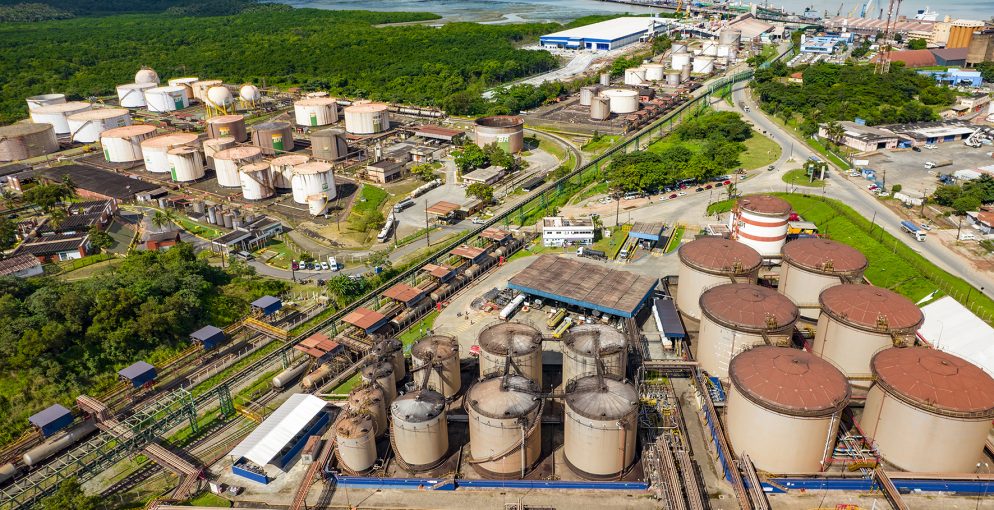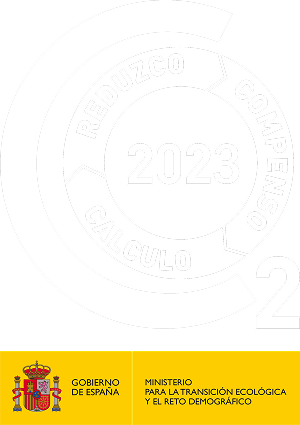- The work will begin with a mapping of greenhouse gas emissions from which the decarbonisation plan will be created, which will include concrete and strategic actions and investments.
- The Port of Itaqui will be one of the first public ports in Brazil to have a decarbonisation programme.
Valencia, 1st September 2023. – The Port of Itaqui has formalised a technical cooperation contract with the Fundación Valenciaport, the aim of which is to draw up the Decarbonisation Plan for the public port of Maranhão, a state located in the north of Brazil.
Itaqui is the fourth port of the country and one of those which has shown the highest rate of growth and investment in recent years, with a total of 36 million tonnes handled in 2022.
The Fundación Valenciaport is a world reference in environmental sustainability, energy transition and decarbonisation programmes in the logistics and port sector and has a strong presence in Latin American ports. For its part, the Port of Valencia was one of the first in the world to establish a zero greenhouse gas emissions target for 2030.
“This alliance is strategic to promote the necessary advances for continuous improvement in environmental management at Itaqui, which is already recognised by ISO 14001:2015. Now we are going, together with Fundación Valenciaport, to map our emissions and outline decarbonisation goals to determine the priority actions needed to achieve those goals,” commented Itaqui Port president Gilberto Lins.
Aurelio Lázaro, head of the project at the Fundación Valenciaport, explained that the joint work will begin with an initial mapping of greenhouse gas emissions, which will cover a broad spectrum of emissions related to port activity. Based on this study, a decarbonisation plan will be drawn up, an instrument that will guide specific and strategic actions and investments.
EMAP (Empresa Maranhense de Administração Portuária), responsible for the management of the Port of Itaqui, has been carrying out its inventory of greenhouse gas emissions since 2020. It has a Climate Change Programme which inventories gas emissions with the intention of reducing or eliminating them. Thanks to this programme, some actions have been taken, such as replacing the fuel in the company’s vehicles with ethanol and sending waste to recycling sites, avoiding landfills or incineration, which emit more gases; but, according to EMAP’s environmental manager, Luane Lemos, “we want to go further, which requires replacing machines, buying electric vehicles and changing the energy matrix for a cleaner one. All of this will be mapped out in the Decarbonisation Plan”.
The Port of Itaqui will be one of the first public ports in Brazil to have a decarbonisation programme, with the aim of mitigating greenhouse gas emissions. This is a relevant project for the port sector, not only for the generation of carbon credits, but also for the eventual preparation of the infrastructures and operations to respond to climate change.
As a signatory to the United Nations Global Compact, the Port of Itaqui is doing its part to comply with SDG 13, Sustainable Development Goal related to climate change. The results of this project “will enable this port enclave to be one of the benchmarks and leaders in this area and inspire other ports in the country to follow this path”, emphasised Jonas Mendes Constante, expert in Port Strategy and Innovation and consultant to the Fundación Valenciaport.
For Miguel Garín, Director of International Development of the Fundación Valenciaport, both the commitment of Itaqui to have the support of Valencian technicians and the interest of the Fundación Valenciaport in disseminating this knowledge, “highlights the commitment of the entity to transform the ports and the international logistics chains into sustainable tools for our economy and society”.


